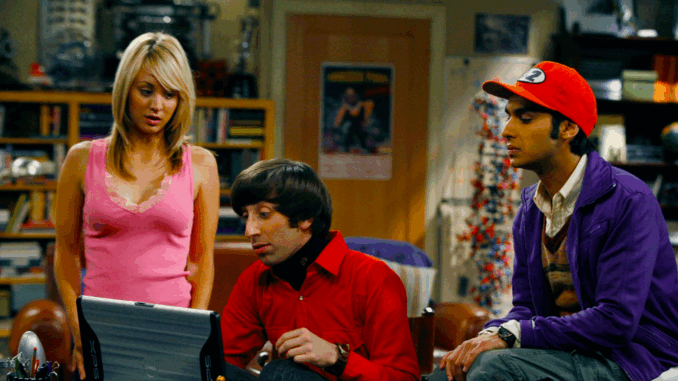
Saying Goodbye to a Sitcom Giant
After twelve seasons, The Big Bang Theory bowed out in 2019, closing the curtain on a cultural phenomenon that spanned more than a decade. With 279 episodes, the show became the longest-running multi-camera sitcom in television history. But more importantly, it did something rare for a long-running series: it knew when, and how, to end.
For fans who had grown up alongside Sheldon, Leonard, Penny, and the rest of the gang, the end felt like losing a group of old friends. But Season 12 proved that The Big Bang Theory didn’t just fade away. It wrapped up its storylines with care, maturity, and emotional truth—delivering a finale that resonated far beyond the laughter.
Behind the Decision to End It
The decision to conclude The Big Bang Theory came as a surprise to many. The series was still dominating ratings and remained a top performer for CBS. But in August 2018, Jim Parsons informed producers that he would not be returning for a 13th season.
Rather than continue the show without one of its central characters, the creators—Chuck Lorre, Bill Prady, and Steve Molaro—opted to end it on their own terms. It was a move rooted in creative integrity. “We didn’t want to limp toward the finish line,” Lorre said. “We wanted to go out strong.”
Themes of Growth and Gratitude
Season 12 was peppered with the usual science jokes, awkward situations, and endearing geek culture references. But beneath the familiar humor, there was a noticeable shift in tone. Characters were growing, facing real-life decisions, and coming to terms with change.
Penny and Leonard navigated questions of parenthood. Raj pursued love more earnestly than ever. Howard and Bernadette adjusted to life as parents of two young kids. And Sheldon, the most emotionally distant character for much of the series, began to show vulnerability in profound ways.
The show leaned into themes of legacy, change, and gratitude—echoing the emotions of its audience, many of whom had spent over a decade with these characters.
The Finale: A Masterclass in Closure
The final episode, a two-part event simply titled “The Change Constant” and “The Stockholm Syndrome,” delivered on every front. It didn’t rely on gimmicks or cliffhangers. Instead, it focused on what mattered: the relationships at the core of the series.
In a full-circle moment, Sheldon and Amy win the Nobel Prize in Physics—an achievement that pays tribute not only to their professional dedication but to their personal growth as a couple. Their trip to Sweden becomes the central backdrop for the finale, but it’s Sheldon’s Nobel acceptance speech that elevates the moment into something timeless.
Instead of rambling about science or basking in self-congratulation, Sheldon uses his speech to thank his friends—finally acknowledging the emotional depth he had struggled to express for years. It was a cathartic, tearful moment for viewers who had long rooted for him to find that empathy.
Meanwhile, Penny and Leonard—once the show’s emotional axis—reveal that they’re expecting a baby, a moment filled with subtle joy rather than over-the-top fanfare. It was a fitting conclusion for a couple that had weathered years of ups and downs.
The final image of the group sitting in the living room, sharing Chinese takeout just as they did in the pilot, was perfect. No dramatic twist. No farewell speeches. Just familiarity, comfort, and quiet understanding.
A Farewell That Respected Its Characters
One of the finale’s greatest strengths was its respect for character development. No one was forced into a contrived ending. Sheldon didn’t suddenly become “normal.” Penny didn’t have to give up her independence. Raj remained single, but no longer incomplete. Howard and Bernadette weren’t defined only by parenthood. Each character’s arc felt authentic and satisfying.
Rather than resetting to a sitcom status quo, The Big Bang Theory honored the reality that people change. Friendships evolve. Dreams shift. But those changes don’t erase the history shared between people—they enrich it.
How Fans and Critics Responded
:max_bytes(150000):strip_icc()/Kevin-Sussman-and-Lauren-Lapkus-big-bang-theory-101024-e1ce1084adf84198948feeeb9315428b.jpg)
Though series finales often divide audiences (Game of Thrones and How I Met Your Mother come to mind), The Big Bang Theory’s conclusion was widely praised. Critics noted its warmth and restraint. Fans appreciated its simplicity and emotional clarity.
It didn’t aim to shock or rewrite history—it aimed to honor the 12 years that came before it. And in doing so, it gave viewers exactly what they needed: a goodbye that felt like a hug, not a punch.
The End Wasn’t the End
Even after the finale aired, The Big Bang Theory lived on in more ways than one. Young Sheldon, the spinoff series narrated by Jim Parsons, gained a deeper emotional resonance after the original show’s ending. The lore built in The Big Bang Theory informed Young Sheldon’s emotional tone and grounded it in nostalgia.
Reruns continue to air globally, introducing new audiences to the gang. Streaming services keep the show alive for binge-watchers. And fan communities thrive—an ongoing testament to the show’s impact.
Knowing When to Let Go
Perhaps the greatest lesson The Big Bang Theory taught us in its final season was the value of timing. In a television landscape where many shows overstay their welcome, it took courage to end a hit show at its peak.
The show may be over, but its spirit endures—in quotes, T-shirts, academic references, and the hearts of fans who found a home in its oddball universe.
Because when the universe finally did expand far enough, the show didn’t implode. It shined.